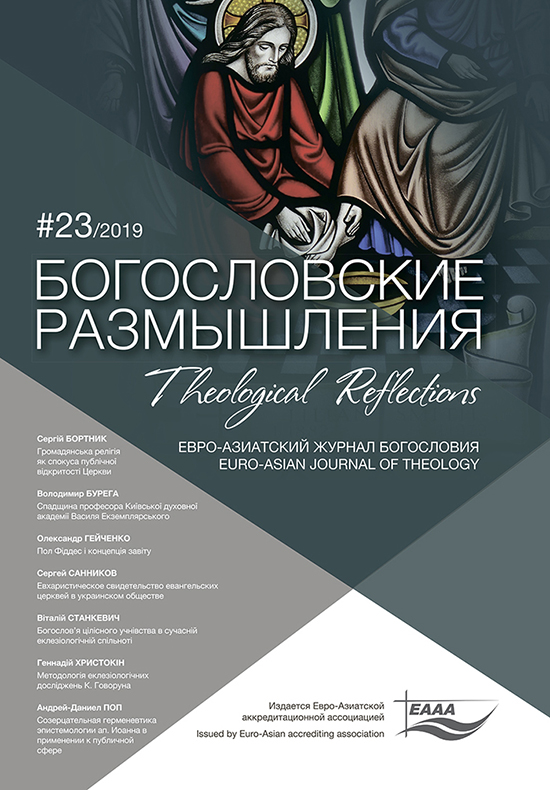Tendencies in Contemporary Baptist Ecclesiology: Paul Fiddes and the Concept of Covenant
DOI:
https://doi.org/10.29357/2521-179X.2019.23.03Keywords:
Paul Fiddes, covenant, covenant ecclesiology, Baptists, wider ecclesial structuresAbstract
The article proposes analysis of ecclesiological views of Paul S. Fiddes, contemporary British Baptist theologian. It focuses on the concept of “covenant ecclesiology”. The covenant ecclesiology is grounded on theology and historical practice of covenant and its contemporary reception, biblical concept of koinonia which is interpreted as participation in the life of the Triune God, and biblical image of the Church as the Body of Christ. The aggregate of these views significantly expands and enriches traditional Baptist ecclesiology. Particularly, covenant ecclesiology helps to look anew at ecclesial associations beyond local church, so called “wider ecclesial structures” (associations, unions, conventions) and to interpret them as one of the forms of being Church and visual manifestation of unity in Christ. In the concluding section the article points to the implications of covenant ecclesiology for wider ecclesial structures: theology of trust which is the basic characteristic of relations among members of the covenant; pastoral oversight (episkope), which is the result of communion or covenant; and participation in Christ’s mission as continuation of his presence and acts in the world through the Church.
References
- Without a list of literature
Downloads
How to Cite
Issue
Section
License
Copyright (c) 2020 Oleksandr GEYCHENKO

This work is licensed under a Creative Commons Attribution-NonCommercial 4.0 International License.
All articles published in the Journal are distributed under a Creative Commons Attribution-NonCommercial 4.0 International License
By submitting an article for publication in Theological Reflections: Eastern European Journal of Theology the author grants the editors the right to publish the article and distribute it in electronic and print form.
The author reserves all copyrights and the right to use the materials of the article in whole or in part for educational purposes, to write his own dissertations, to prepare abstracts, conference reports, oral presentations, etc., as well as post electronic copies of articles (including the final electronic version downloaded from the journal’s official website) on non-commercial web-resources without the consent of the editorial board and founders.



